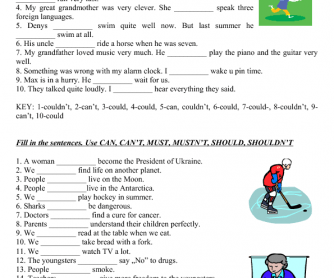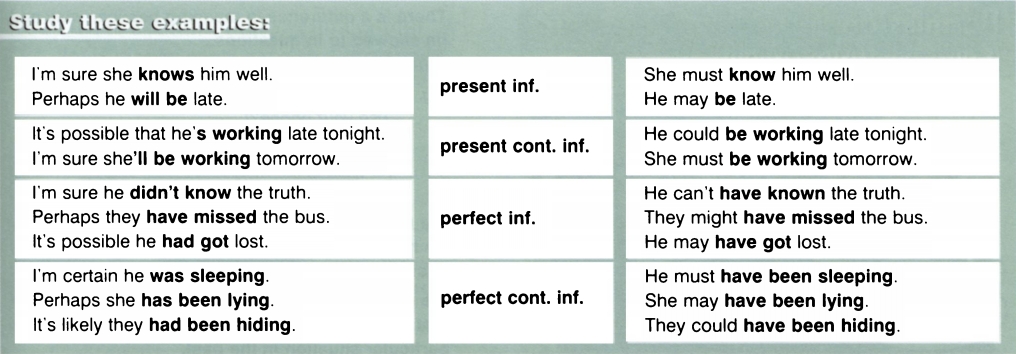


We should invite Sally and her husband to come to the picnic on Saturday. Thats why I told my father that he start walking once a day.

The modal ‘can’ is used to express ability or opportunity, to request or offer permission and to show possibility or impossibility. The modal verbs are can, could, may, might, shall, should, will and would. We also use modals to do things like talking about ability, asking permission making requests and offers and so on. Use of ‘Can’ ‘Can’ is the most commonly used modal verb in English. Modal verbs are used to show if we believe something is certain, probable or possible (or not). Must, ought, should, will, are used to express certainty. New research suggests that exercise can reduce the chance of heart disease as well as cancer. Modals Exercises for Class 8 CBSE With Answers English Grammar.

Ought to is very uncommon in everyday use, especially in its negative and interrogative form, and is generally more formal. The modal auxiliaries job is to express possibility (hypothesis, futurity, doubt) and necessity (by inference, such-and-such must necessarily be the case). Should is used more often and is less formal. They differ in usage despite both having similar meanings. They are always followed by the infinitive.
#Modal verbs exercises should and ought to plus
You should not listen to the news every day if it upsets you. Here youll find modal verbs of probability explanations plus exercises. The modal verbs should and ought to express weaker obligation or advice. You can add adverbs after a modal verb too. Here are some examples to show you the difference. If we want to give strong advice we can use must. When you use other tenses you have to replace them. We can use modal verbs should (not) and ought (not) to, to make suggestions and give advice. Modal verbs include can, could, must, ought to, may, might, will, would, shall, should. can could I walk when I was less than a year old.
#Modal verbs exercises should and ought to download
You can only use them with the present tense. Modal verbs: Could Should Would (Exercises) Click here to download this printable exercise in PDF. can / could / may / might/ must / shall / should / ought to / will / would Modal verbs are used to. Modal verbs don't have a past form (except can) and a past participle (3 rd form). Modal verbs rules and examples Modal verbs are. The most common modal verbs are can, may and must. We also use them to make requests and offers. These modalities (ability, permission, advice, etc.) can be practised in the following exercises.Modal verbs are types of auxiliary verbs which express necessity, ability, permission or possibility. They are also used in a sentence to express ability, asking permission, making requests and offers, and so on. Modal verbs (will, can, may, must, etc.) are used to show if something is seen as certain, probable or possible (or not).


 0 kommentar(er)
0 kommentar(er)
